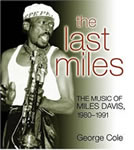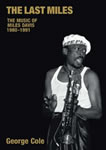
|
Bill Schnee Producer, engineer and mixing specialist Bill Schnee talks about his distinguished career and what it was like working on Miles’s albums [read the interview] |

|
Shigeru Uchiyama Few photographers got closer to Miles than Shigeru Uchiyama. The Last Miles.com was fortunate to ask Shigeru about his stunning of images of Miles on-stage, backstage and in many informal moments [read the interview] |

|
Lenny White Lenny White was just nineteen when he got to play on Bitches Brew. In this exclusive interview, Lenny talks about Miles and his incredible career after working with on that landmark album [read the interview] |

|
John Beasley John Beasley played keyboards in Miles’ band from April to May 1989. He talks here about Miles, working with Steely Dan, his love for the music of Thelonious Monk, the great appeal of Indian music, and more [read the interview] |

|
Tony Hall Tony Hall was a music business man for all seasons, who knew Miles for nearly four decades. He shares his memories in this exclusive interview from 2007 [read the interview] |

|
Michael Benabib Celebrity photographer Michael Benabib shares his memories of a Miles photo session during the recording of the Doo-Bop album [read the interview] |

|
Carlos Albrecht Read an exclusive interview with Carlos Albrecht, who engineered the last Miles Davis band session at Bauer Studios in Germany [read the interview] |
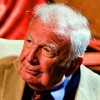
|
Bucky Pizzarelli Veteran of the guitar for over six decades, Bucky Pizzarelli played briefly with Miles to help in the recording of the track “Fun”. Here he discusses his 60 year career and the how the times and music have changed [read the interview] |
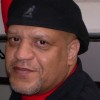
|
Ricky Wellman Playing in Miles’s band from 1987 right until the final gig on 25th August 1991, drummer Ricky Wellman shares his thoughts about what it was like to work and play with Miles and some of the most memorable moments [read the interview] |

|
Marcus Miller – Tutu Revisited What was meant to be a one-off gig turned into an acclaimed album and world tour. Marcus Miller gives an in-depth interview about how Tutu Revisited came about and what it was like revisiting this key Miles album three decades on [read the interview] |
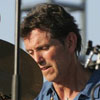
|
Chris Parker Drummer Chris Parker played drum tracks for a remixed version of the song “Shout,” a disco-funk number from Miles’ The Man With The Horn, back in 1981. In this exclusive interview, Chris explains the story behind the “Shout” session [read the interview] |
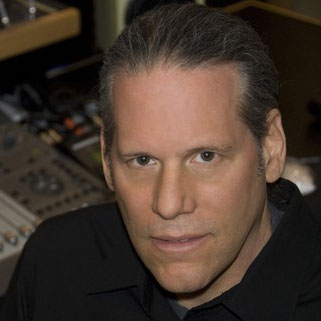
|
John Potoker John “Tokes” Potoker is a multi-talented sound specialist, whose engineering, mixing, remixing and production work can be found on a vast array of recordings.He worked on a remix of Miles’ “Shout” and explains how the process came about [read the interview] |

|
Tribute To Ian Carr Ian Carr wrote the definitive biography of Miles Davis and had boundless enthusiasm for bringing jazz to a wider audience, as well as being an accomplished jazz musician himself. Sadly Ian passed away in February 2009 – this is my tribute to him [read the tribute] |

|
Eleana (Steinberg) Tee Cobb Eleana played a key role in helping Miles return to the music scene after his prolonged absence when in 1977, she took a sick and broken Miles out of New York. Here she reveals how Miles returned to full health and creativity [read the interview] |
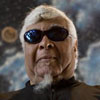
|
Pete Cosey Acclaimed guitarist Pete Cosey played with Miles on stage and in the studio from 1973 to 1979. In this exclusive interview, Pete describes what it was like to work with Miles and his own creative ventures [read the interview] |

|
Rolf de Heer Rolf de Heer was the director of Dingo, the only full length film in which Miles starred. Here Rolf reveals what it was like working with Miles on the movie set [read the interview] |

|
Mary Lambert Mary Lambert was the film director of Siesta, an edgy thriller for which Miles and Marcus Miller provided the memorable soundtrack. Here she discusses working with Miles and how the soundtrack came about [read the interview] |

|
George Pavlis Keyboardist George Pavlis reveals what happened at the 1978 Miles sessions, which form the musical missing link between Miles’s retirement in 1975 and his return in 1981 [read the interview] |

|
T. M. Stevens Monster bassist T.M. Stevens has played with both James Brown and The Pretenders among many others and was responsible for the smash hit single “I Shoulda Loved Ya”. Here he discusses being part of Miles’s historical last jam in 1978, after which Miles remained silent for 3 years [read the interview] |
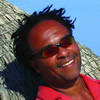
|
Ray Parker Jr The man behind megahit “Ghostbusters” and a legendary session musician with the likes of Stevie Wonder, Ray Parker Jr also hosted the recording sessions for Miles’s missing 1980s album Rubberband [read the interview] |

|
Florence Halfon Florence Halfon is the Jazz Catalogue Manager Warner Music UK. She explains the background to The Very Best of Miles Davis: The Warner Bros. Sessions 1985-1991 and reveals some exciting news for fans of Miles’s 1980s music [read the interview] |
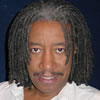
|
Bashiri Johnson One of the best percussionists around, Bashiri Johnson talks about what it was like working on a Miles session, Miles as a musician and inspiration, life as a session musician and why it’s important to embrace new music technology [read the interview] |

|
Foley The man with the unique lead bass sound who played with Miles from 1987 up until his death, Foley has since gone on to do a plethora of work and write The Big Truth, a provocative take on where the music industry is headed [read the interview] |
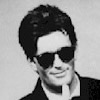
|
Green Gartside The man behind Scritti Politti was actively sought out by Miles which led to a friendship between the two and Miles covering Green’s track “Perfect Way”. Green reveals how this unlikely pairing came about, thanks to interviewer Anthony Reynolds [read the interview] |
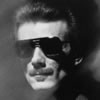
|
Eric Leeds: Part Two Saxophonist Eric Leeds worked with both Prince and Miles Davis during the 1980s. In the second part of this exclusive interview, Eric describes Prince’s work with Miles and the making of the Madhouse albums [read the interview] |
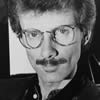
|
Eric Leeds: Part One Saxophonist Eric Leeds worked with both Prince and Miles Davis during the 1980s. In the first part of this exclusive interview, Eric describes his relationship with Prince and his views of Miles’s work before working with him [read the interview] |
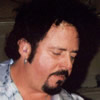
|
Steve Lukather Guitarist Steve “Luke” Lukather is best known as the guitarist in the rock band Toto, and he reveals how the band managed to get Miles to play on one of Toto’s tracks [read the interview] |

|
Steve Khan Playing with Miles on the title track of the Amandla album, Steve Khan’s guitar work with Miles remained uncredited until recently. Here he explains his role in one of Miles’ key 80s albums [read the interview] |

|
Miles’s Associates: Jason Miles The man behind the bulk of the programming for the bulk of Tutu, Jason Miles also worked on the follow-up albums, Siesta and Amandla [read the article] |

|
Joe Beck Guitarist Joe Beck played with Miles in the 1960s but the tracks he collaborated on weren’t released until the late 70s and early 80s. He talks about working in session with Miles and Gil Evans [read the interview] |

|
Miles’s Associates: Randy Hall The first in an occasional series that looks at some of the people associated with Miles in the 1980s who haven’t had the recognition they deserve [read the article] |
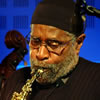
|
Bennie Maupin One of the key players on both Miles’s Bitches Brew and Herbie Hancock’s Headhunters, Bennie Maupin reflects on the musical revolution set in motion by both albums [read the interview] |

|
Donald Harrison One of the few alto saxophonists Miles had in his bands, Donald Harrison talks about his experiences playing live with Miles and his impressions of the man [read the interview] |

|
Eric Calvi Involved in the production of Decoy, Tutu and Amandla, recording engineer Eric Calvi gives a candid view of those albums’s sessions [read the interview] |

|
Alan Leeds The enigmatic relationship between Miles Davis and Prince remains one of the most elusive episodes of Miles’s career. Prince’s tour manager Alan Leeds was the man who introduced the two of them and watched their friendship grow [read the interview] |

|
Jim Rose Miles claimed Jim Rose was “the best road manager I ever had”. In this exclusive TheLastMiles.com interview, Jim recounts life on tour with Miles through their original time together in the early 70s and then again through most of the 80s [read the interview] |

|
Jeff Richman The mastermind behind the guitar-driven tribute album Fusion For Miles, Jeff Richman explains how the album came about and the impact of Miles’ life on work on those involved [read the interview] |
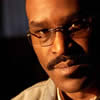
|
Easy Mo Bee Easy Mo Bee was Miles’ last collaborator, working on his final album Doo-Bop. In this exclusive interview, Easy Mo Bee discusses Doo-Bop‘s controversial posthumous release and enduring legacy [read the interview] |

|
Peter Doell Studio engineer Peter Doell worked on Miles’ legendary Tutu album. In an exclusive interview with TheLastMiles.com, he reveals what went on in the Tutu sessions [read the interview] |

|
Jo Gelbard In the 1980s, Jo Gelbard became Miles’s art teacher, then his artistic collaborator and eventually, his companion. Here she talks about their work and life together [read the interview] |

|
Annabel Jankel Read an exclusive interview with Annabel Jankel, the co-director of Miles’s first music video Decoy, about how the video was conceived and what Miles thought of miming to his own music [read the interview] |
praise for The Last Miles
“The best Miles Davis book ever.” Randy Hall, singer/guitarist/producer, who worked with Miles in the 1980s
“An important book.” Brian Priestley, co-author of ‘The Rough Guide to Jazz’, jazz pianist, critic and reviewer
“Very moving, emotional material.” Gordon Meltzer, Miles’s last road manager and executive producer of the ‘Doo-Bop’ album
“George Cole’s writing, his choice of references, his descriptions of many incidents – it is all so clear and respectful, and shows a deep understanding.” Palle Mikkelborg, composer, arranger and producer of the ‘Aura’ album
“Wow! What a great book. Finally, something that really gets it right. Thank you for capturing what was going on, the mood, everything.” Adam Holzman, Miles’s keyboardist and musical director 1985-1989
“Wonderful job, congratulations! An immense amount of work must have gone into it, I can't even imagine. But it was very cool to see that era of Miles treated with the same respect as every other… someone gets it!” Benny Rietveld, Miles's bassist 1988-1990
“The book is wonderful. Congratulations for your very important contribution to the historical documentation of many [musicians] who would otherwise have been overlooked!!!!” Robert Irving III Miles’s musical director 1983-1988
“I have to say that you did a marvellous job! It brought back strong memories of that time periodand answered a number of questions I had, especially the chapter on the Rubberband sessions. A brilliant job!” Patrick Murray, who worked on the road with Miles from 1986-1990 and was Miles’s concert sound mixer from 1988-1990
“It is truly an excellent body of work that literally takes a reader from hearing rumours to realising truths about the Chicago group and our collective take on the Miles Davis comeback.” Glenn Burris, co-writer of "Shout"
“The most immediate impact that this book had on me was to make me listen again to Miles’ later recordings with a completely regenerated ear and this really is the reason why this book works so well and is an essential read for any true Miles Davis appreciator… you will be hard pressed to find a more inspirational read, written by a man who quite simply loves Miles Davis’ music.” Mike Chadwick, Ejazz.fm
“There are large chunks of fresh material here… Fill[s] in quite a few gaps and dismisses blanket condemnations of [Miles’s] pop phase.” Stephen Graham, Jazzwise
“Cole does for Miles’ late work what Ian Macdonald’s ‘Revolution In The Head’ does for The Beatles, examining each album in meticulous detail.” John Lewis, Time Out
“Cole’s analysis has a meticulous, forensic character… [and] is able to bring a wealth of new information to light…. This book should get people talking. It should be the first rather than the last word on an intriguing chapter of the life an extraordinarily complex artist. And Davis’s vanity would surely have loved that.” Kevin Le Gendre, Independent on Sunday
“The book is beautiful. I think you did a great job on covering Miles’s life and legacy.” Sid Reynolds, hip-hop producer
“GREATFUCKINJOBWITDABOOK” Foley, Miles’s lead bassist 1987-1991
“Cole’s certainly produced a fascinating book.” Chris Ingham, Mojo
“As with any good musical biography, Cole had made me think again about those albums such as Siesta, You’re Under Arrest, The Man with the Horn, that are now stashed in my attic.” John Bungey, The Times
“I thought it was wonderful. It’s a very detailed look at a certain part of the career and life of Miles Davis. A lot of people didn’t pay attention to this and I’m glad that George Cole took the time to focus on these final years of Miles’s life.” Easy Mo Bee, co-producer of Doo-Bop
“Many people have come to me in the past about how the "last miles” bands had been overlooked and ignored by journalists. This book is a comprehensive answer to these omissions. From my discussions with musicians from the latter years with Miles it seems pretty clear they feel some vindication as a result of this book. I thank you sincerely for telling our story. Most everything I have read is as close to my memory of how things happened as any book could hope to be. I think you've done a wonderful job.” Darryl Jones, bassist with Miles 1983-85, 1986-1988
“The title is likely to send most jazzbos running, with received wisdom having handed down the rule that in the 80's Miles was only good for playing live; and half of that was just the pleasure of seeing him in person. For a single man to take on the 400-page+ task of changing popular opinion is a very tall order indeed. For him to make you want to actively revisit the decade in question is a near-miracle. Detailing album histories and giving final verdicts, Cole has made every effort to lay the evidence out bare. The analysis could have been a chore were it not for the presence of first-hand interviews with all the major players, making this not just a scholarly study, but a tribute to the man himself, And for a book such as this, you learn more about Davis that could have been expected.” Jason Draper, Record Collector
“There simply hasn’t been another book published on Miles Davis, in any period that has managed to obtain the wealth of interview material and cover his recorded work and various live tours in such a complete and comprehensive fashion… Engagingly written from start to finish, filled with more facts than you’ll be able to remember first time through, The Last Miles is an essential portrait of Miles’ last decade and a strong argument that his music was both valid and perfectly in keeping with a musical philosophy that would ultimately stretch over six decades.” John Kelman, All About Jazz.com
“We veterans of Miles’ last bands are lucky to have such a thorough and insightful look into Miles last period… I really enjoyed the book!” John Scofield, Miles's guitarist 1982-1985
“Cole has spoken to practically everyone who worked with Miles in his final decade. He has traced the evolution of each of those final albums, cut by cut, splice by splice….[Miles] comes out of Cole’s account larger, warmer and if anything even more important than ever.” Brian Morton (co-writer of The Penguin Guide to Jazz), The Wire
“Through lively analyses of all Miles’ recorded work from this period and much that went unreleased, including the ‘lost’ album Rubberband, [Cole] does enough to send readers back to the original albums.” Simon Evans, Choice
“… Cole is a persuasive writer: he prompted me to go and dig out albums that I'd dismissed as inconsequential and listen again with fresh ears. … A rewarding read.” Charles Waring, Blues & Soul
“Cole takes us on an exhaustive journey deep into the heart of Miles’ late recordings… The Last Miles needs to be covered by working musicians, producers and Miles’ fans alike.” Livingstone Marquis, Straight, No Chaser
“ George Cole has written a book that should be required reading for anyone with a serious interest in Davis’ life and work irrespective of which period of his music you prefer. It offers a valuable insight into this most complex of personalities, and reveals a side to Miles that many may not have known existed…for this reader it has prompted a re-examination of this decade which has revealed a fascinating area of music that I had previously overlooked.” Nick Lea, Jazzviews.co.uk
“In the flurry of books since [Miles Davis's] death, none has dealt in depth with the music of this period. Music writer George Cole fills this gap… It is so detailed and intimate that the reader feels he is virtually living with Davis as he seeks to reinvent himself… a rich and rewarding read.” Irwin Block, The Montreal Gazette
“This is a must for every Miles fan.” Neal Gardner, Blogcritics.org
“A fantastic book, an amazing insight into Miles.” Guy Barker, jazz trumpeter
“For Miles fans, this book is a must.” Jez Nelson, presenter BBC Radio Jazz on 3
“I really do recommend The Last Miles… it is a fine work.” John Cavanagh, presenter Radio Scotland’s Bebop to Hip-Hop
“A great book that plays a great tribute to the last years of Miles’ life.” Erik Telford, presenter Miles Radio.com
“The fact of having personally interviewed all those characters… without much recall to interviews already noted and the usual anecdotes, renders “The Last Miles” as excellent… a book that certainly is seen as a work of reference.” Maurizio Comandini, All About Jazz.com Italy
“[Cole] has written a comprehensive account of the comeback and the albums it produced… He takes the reader through each of the albums, cut by cut, examining the musical choices, the musicians and their successes… Cole's book is a valuable resource on the last 11 years of a true music legend's life.” Chris Smith, Winnipeg Free Press
“I've been thoroughly enjoying your book. I'm sure it'll go a long way towards rectifying some of the negative historical appraisals of Miles' later works that have become prevalent.” Kei Akagi, keyboardist in Miles's band 1989-1990.
“Cole gives an exhaustive account of every track recorded [and, it seems, every live show] in that decade and of every one of the dozens of musicians who played on them but what's most interesting is the portrait of Miles Davis that emerges from it all. Sometimes an asshole and a bully, yes, but also a very funny guy who was a good friend to many and a mentor to even more, a man with drug problems who was more often in great pain from other maladies. Through it all, Davis was obsessed with moving his music forward with anyone who could help him do it - from Prince to Public Enemy, from Scritti Politti to a violinist he saw on Johnny Carson and hired on the spot.” Rock & Rap Confidential
“I thought your book was awesome and straight to the point. To tell stories the way it really happened is nothing but the truth! Congratulations and thanks!” Ricky Wellman, Miles's drummer 1987-1991
“George Cole has made a major contribution to jazz scholarship… written over a three-year period, the degree of detail is quite astonishing and the research so extensive that it becomes possible to contradict claims made by Miles himself in his autobiography. Every track on every 1981-1991 album is discussed in length… a very valuable book.” Chris Yates, The Jazz Rag
“This book is a model of how these types of books should be… If late period Miles is in the readers’ interest, the reader should rush out and purchase this volume. It is invaluable.” Robert Iannapollo, ARSC Journal
The Last Miles was voted one of the top ten music books of 2005 by Record Collector magazine.
The Last Miles was joint winner of the Association for Recorded Sound Collections’ Best Jazz History Book 2006 award.
